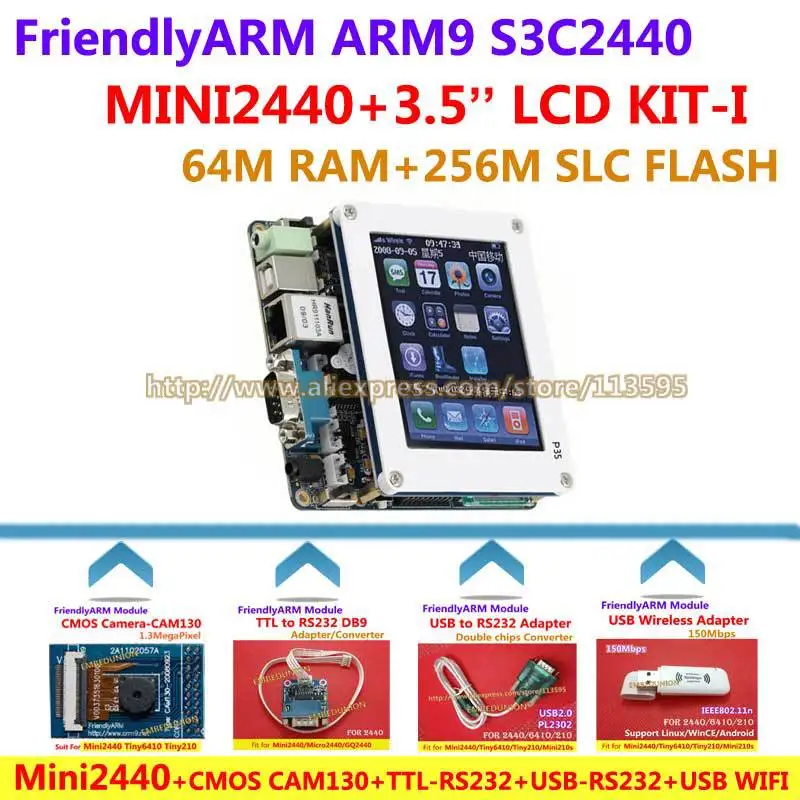Friendly Arm 2440 Usb Driver
10.10.2019 admin
Hi, I have the following urgent question. We are trying to interface our USB-based devices to the mini2440/FriendlyARM board running Win CE 6.0. But our devices are not recognized by the mini2440 board (Win CE 6.0). We put an USB traffic analyzer to investigate what is happening and we think the following might be an explanation why our devices are not recognized.
Usb Driver Windows 7

Room 118,Building A, Shilian Technology Park, No.33 Science Road,Science City,Luogang District, Guangzhou,GuangDong China + 1025. The Mini2440's complement of PC-style I/O includes Ethernet, USB host and slave ports, and three serial connections. Download naruto episode 178 subtitle indonesia mp4. The mini 2440 board friendly arm offers a 'stable CPU power source chip and reset system. Available options include a WiFi module, and CMOS and USB camera, GPS, GPRS options. The M2440's complement of PC-style I/O includes Ethernet, USB host and slave ports, and three serial connections. The mini 2440 board friendly arm offers a 'stable CPU power source chip and reset system. Available options include a WiFi module, and CMOS and USB camera, GPS, GPRS options.

When the USB bus is negotiating to get a descriptor from the slave device, it sends a request for 8 bytes in WinCE and 64 bytes in Linux (and Window) environment. Our device does not look at the length field and always send 18 bytes as a response. Since WinCE kernel appears to allocate 8 bytes for response data, it is possible that the 18-byte response might crash the kernel and as a consequence we do not see anything happening. (Normally a dialog box will pop up requesting for the USB dll- assuming that the registry does not contain an entry corresponding to the vendor id/product id and/or USB device classification). Unfortunately we cannot fix our device (since there are too many already sold) and we have to fix the way WinCE gets the descriptors.
Usb Driver Download
It would be helpful it one can point out which modules are used in the kernel (like USBD.dll) and the corresponding source code. Also RETAILMSGs do not appear on the serial port attached to the box. We tried to compile a debug version (which we did after many hours of trying but there seems to be a problem loading a 42 Mbyte kernel (though we used the option of loading kernel bigger than 32 Mbytes). If we have some kind of messages coming out of the box, we can debug the code ourselves to an extent. Any help in fixing this problem of not recognizing our USB devices will be greatly appreciated. Thanks, Paul. You may need to modify the USB host controller driver.
When a device is attached, the HCD first get the descriptor and then notifies USBD by calling its HcdDeviceAttached. Since you probably not use standard USB host controller, you will need tracing the HCD driver to figure out how it issue an USBDEVICEDESCRIPTORTYPE command. And for your reference, in standard HCD drivers, the USBDEVICEDESCRIPTORTYPE is issued by GetDescriptor which is invoked by CHub::AttachDevice. There is a state machine in CHub::AttachDevice that calls GetDescriptor (with USBDEVICEDESCRIPTORTYPE) 3 times, the first 2 are issued with packet size as ENDPOINTZEROMINMAXPACKETSIZE (8 bytes) for initialization and only get the full descriptor in 3rd call.
For detail please refer to following code public common oak drivers usb hcd COMMON cdevice.cpp public common oak drivers usb hcd USB20 USB2COM cdevice.cpp. We tried to compile a debug version (which we did after many hours of trying but there seems to be a problem loading a 42 Mbyte kernel (though we used the option of loading kernel bigger than 32 Mbytes). If we have some kind of messages coming out of the box, we can debug the code ourselves to an extent. When you a do a debug build, it takes up alot more space, you may need to adjust your memory map or where certain memory buffers are located. I would look at your config.bib and look at your Memory Map to ensure that with your new larger OS Image that you are not over-running the area allocated for your OS Image. It is possible that the entry is not set to automatically re-size the image, or it is also possible that it is now big enough now that you are over-running other regions that you had reserved for memory buffers. As per not getting any RETAILMSGs are you running a SHIP or RETAIL build?
In a SHIP build all RETAILMSG are actually compiled out and you will need to use NKDbgPrintfW. Do you get anything out your debug port at all that tells you at what stage the debug build is failing?
Hope this helps, Brad.